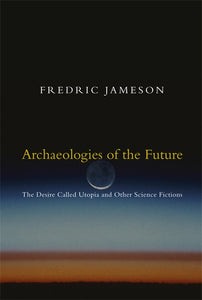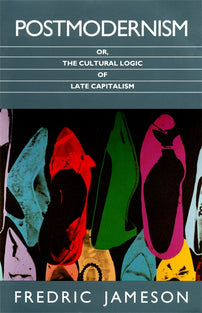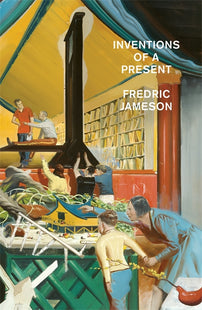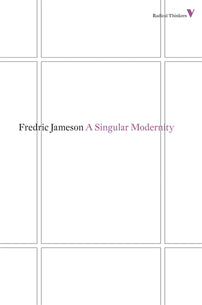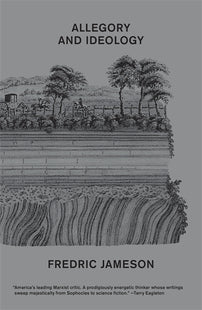Imagining Utopia
Gerry Canavan reflects on Fredric Jameson's Archaeologies of the Future for this instalment of Jameson at 90.

I’m far from the first graduate student to worry that my advisor had already solved all the problems of the field before I’d written a single word of my dissertation—but I think I may have had more to worry about than most. In 2006 I entered Duke’s Graduate Program in Literature, seeking to write about America, apocalypticism, and the twentieth century, and, in 2005, my future dissertation advisor Fredric Jameson published Archaeologies of the Future: The Desire Called Utopia and Other Science Fictions, the culminating gesture of a career-long fascination with the political potential of SF that dates back as far as his influential essay “Metacommentary” (1971). At a dire moment in world history, Archaeologies was a landmark articulation of how Marxists approach the idea of the future—and, nearly twenty years later, our own dire moment, the book remains among the most stirring, the most strident, and, dare I say, the most optimistic systems for interpreting SF available anywhere.
Early in my classes—in all my classes, but especially my classes on SF—I introduce the concept of utopian critique through the well-worn quote from “Utopia and Reification in Mass Culture” (which was published the same year I was born, 1979):
All contemporary works of art—whether those of high culture and modernism or of mass culture and commercial culture—have as their underlying impulse—albeit in what is often distorted and repressed, unconscious form—our deepest fantasies about the nature of social life, both as we live it now, and as we feel in our bones it ought rather to be lived.
This notion is, I suggest, the skeleton key to understanding essentially all work in literary and artistic analysis, whether or not a critic acknowledges any sort of scholarly debt to Jameson or, indeed, whether or not they view Jameson as a political ally at all. We, in the literary academy, are all Jamesonians, in the limited and specific sense that we all believe that works of art and literature are systems of desire. Whether or not those desires are admitted or unadmitted, avowed or disavowed, ultimately good for us or ultimately very bad for us, we create these oddly useless objects because they give us something we would otherwise, desperately, lack. We make art and we submit art to critique because we think that doing so might help to free us, at least a little bit.
[book-strip index="1"]
SF, in Jameson’s hands, becomes a special case of this universal utopian tendency. Because of its intense relationship to futurity—to civilizational histories that can be better or worse, depending on what people do in the present—SF offers an important site for working through just what it is we are hoping for (as well as an experimental laboratory for figuring out if we’re ever likely to get it, or if we’d even be happy with the results if we did). Consequently, I rather quickly move from “Utopia and Reification” to the framework Jameson establishes in the hoping pages of Archaeologies, helping us to see that utopia and dystopia are, in a sense, just two sides of the same coin and that it is really the anti-utopians, the people who believe no genuine historical difference is possible, who are the people we really need to worry about: “For those only too wary of the motives of its critics, yet no less conscious of Utopia's structural ambiguities, those mindful of the very real political function of the idea and the program of Utopia in our time, the slogan of anti-anti-Utopianism might well offer the best working strategy.”
I have used the insight provided by this observation to understand almost every text I have read since 2005, and it’s from the sixth page of a six-page preface. But similarly brilliant insights abound on every page of this mammoth 430-page text: from the deceptively simple observation that the foundational gesture of utopia is the elimination of money; to the book’s impossibly deep dive into the difference between utopian content and utopian form; to the interplay of collectivity, temporality, embodiment, and textuality in the glimmers of utopia; to the difference between technology and magic; to the difference between the SF novel and the historical novel, the medieval romance, the detective novel, and Disneyland; to the famous designation of Philip K. Dick as the “Shakespeare of science fiction” and the championing of other visionaries like Le Guin, Delany, Brunner, Robinson, and a personal favourite whom I only discovered through the book, Olaf Stapledon; to an impossibly deep archive of what feels like every work of SF ever published; to Greimas squares you people wouldn’t believe. And that’s only the part of the book that isn’t an oops-all-bangers greatest-hits collection of his best essays on SF since the 70s. For a person like me in 2005, seeking to create a graduate programme in science fiction studies where one didn’t exist, Archaeologies was not only an essential text—it was a one-stop shop for subjecting SF to critique, the launchpad for everything I’ve done in my career since. It’d be hard to think of anyone that has done it better—and hard for me to shake the nagging thought that I’ve never had an idea about science fiction that isn’t hidden somewhere within Archaeology’s pages.
[book-strip index="2"]
In a career that also includes Marxism and Form, The Political Unconscious, and Postmodernism, to only start to list the highlights of his unfathomably rich career, it may always be a bit hard for Archaeologies to crack the all-time Jameson top ten. But, for me, it is more than just a sentimental favourite: if you believe, as I believe, and as Jameson writes in Archaeologies, that our “increasing inability to imagine a different future enhances rather than diminishes the appeal and also the function of Utopia,” you must necessarily conclude that SF is the most important literary genre of our age—and, as long as that is true, I think Archaeologies will remain a most indispensable roadmap.
See all works by Fredric Jameson here. His new book, Inventions of a Present: The Novel in its Crisis of Globalization is out on May 7.
[book-strip index="3"]
